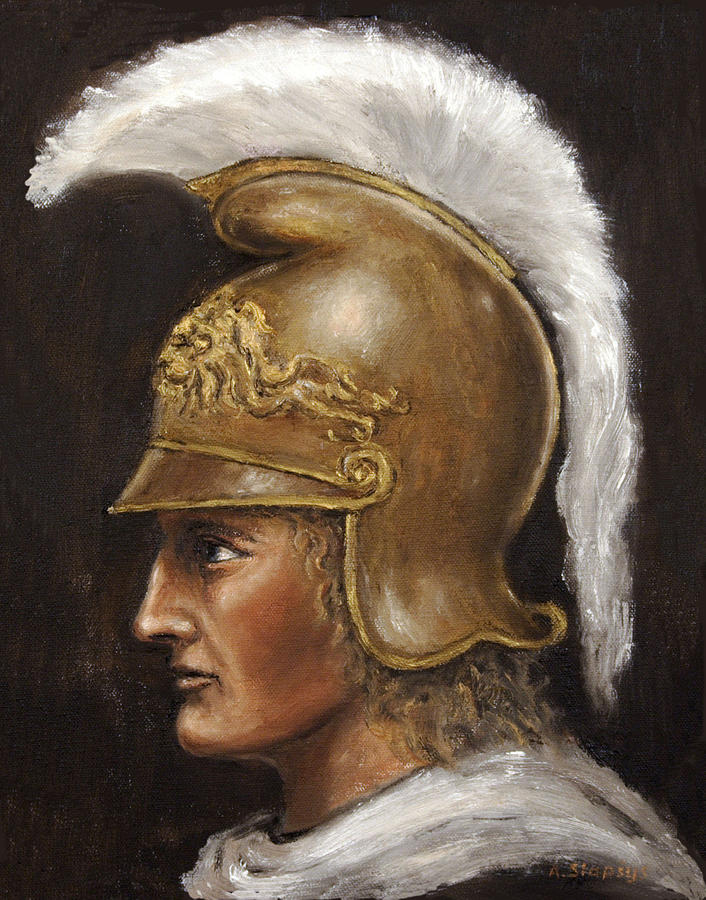Greece: From independent city-states through Alexander the Great (Acts 20)
During this period the autonomous city-state, or polis, developed. Fear of attack was constant, and most of the hundreds of city-states grew up around a high, easily defendable stronghold called a citadel or acropolis. During the Archaic period (seventh-sixth centuries B.C.) Greece began to rebound, and particular city-states asserted themselves. In the Peloponnesian peninsula (Southwestern Greece), Sparta rose to prominence, as did Corinth and Argos in the north and east, respectively. In northern Greece Thebes exercised hegemony over the Boeotian League, a federation of cities in that area, while Athens and Megara vied for authority in the region of Attica. Meanwhile, Greek colonies thrived across the eastern Mediterranean. The two major centres for Greek colonies were the western coastline of Anatolia (Turkey) and the lower half of Italy, including Sicily.
Soon after 500 B.C. the Greeks found themselves facing a formidable external threat. The Persian king Darius I had extended his influence as far east as modern Pakistan and as far east as Thrace and Macedonia. The Greek cities of western Anatolia, with the help of several Greek city-states, rebelled against Persia in 499-493 B.C. After Darius crushed the revolt, he decided that all of Greece must be subdued, and he dispatched envoys throughout the region to demand allegiance. Many city-states – but not Athens or Sparta – acquiesced. Darius, arriving in 490 with a sizable army, destroyed the city of Eretria and began pushing south towards Athens. His force of perhaps 20,000 soldiers met an inferior Athenian contingent of 9,000 at Marathon. The brilliant Athenian general Miltiades nonetheless led his men to a decisive victory (492 B.C.).
Following the death of Darius, his son Xerxes returned to Greece in 480 B.C. with a massive army. The Persian war machine moved south, overwhelming everything in its path. Sparta prepared for land defence, while Athens enlarged her navy. The Persians sacked Athens (which the Athenians had abandoned), but the Athenian navy managed to lure Xerxes into battle in a narrow channel near the island of Salamis, where trapped Persians were thoroughly defeated. Because his army was extremely vulnerable without support from the sea, Xerxes retreated, leaving a contingent of 60,000 troops that attempted to subdue the Greeks in the following year. They were destroyed by a Spartan-led army at Plataea, effectively ending the Persian threat.
Just prior to 500 B.C. Athens became the first democracy in history. The people had expelled a series of tyrants and established a popular assembly. The other city-states mistrusted the Athenians and their aberrant form of government, and Athens gave the others additional cause for concern: Following the expulsion of the Persians from Greece and, soon afterward, from some Greek cities of Asia Minor, Athens founded the Athenian League, a confederation of Greek cities around the Aegean Sea. Athens, as a leader, became tremendously wealthy from the tribute it gathered. The glorious monuments on the Athenian Acropolis were funded by money extracted from the league’s members, and by the mid-fifth century B.C. Athens had become Greece’s wealthiest, as well as culturally dominant, city. The comic playwright Aristophanes; the tragic playwrights Aeschylus, Sophocles and Euripides; and the philosopher Socrates all inhabited the city at this time.
In 431 B.C. Sparta, Corinth, Megara and other allies responded with military force. The historian Thucydides recounted the events of the conflict in The Peloponnesian War. A plague ravaged the Athenian population in 430, yet Athens continued to hold up under the heavy threat. The turning point came when the Athenians launched a failed campaign to conquer Syracuse on the island of Sicily. The Spartans seized their advantage and forced an Athenian surrender in 404, pulling down its walls but sparing the city.
For much of the fourth century B.C. Greece was entangled in conflicts among a resurgent Athens, Sparta, Corinth and Thebes. Alliances among the four prominent cities were repeatedly formed and broken. The future of Greece, however, by this point lay to the north, with Philip II of Macedon, whose army swept south and crushed the confederated Greek army in 338 B.C. at Chaeronea, near Thebes. Several attempts at revolt proved pointless, and Macedonian control of Greece was strengthened under Philip’s son, Alexander the Great, who launched an invasion of the Persian Empire and, in the course of a few years og lightning campaigns through Anatolia, the Levant, Egypt, Mesopotamia and Persia, brought the empire to its end.
—
